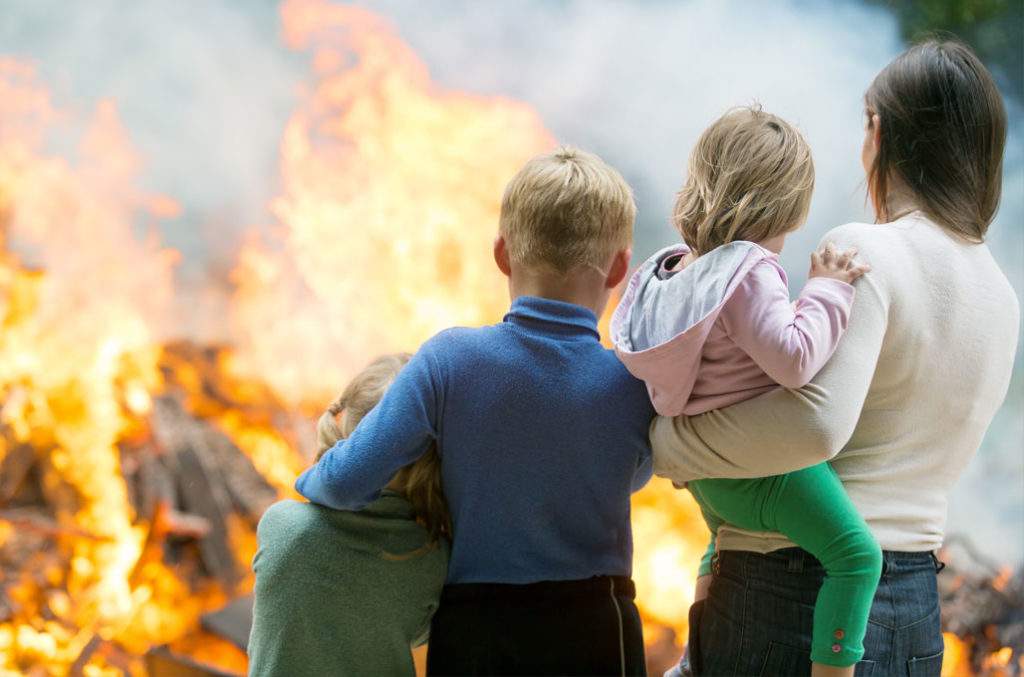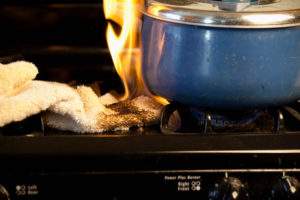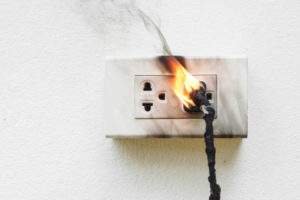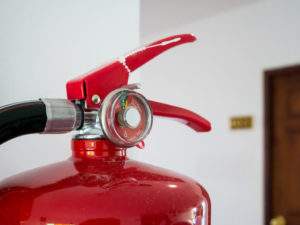Top 5 house fire accidents and how to prevent them

It might go down as every homeowner’s worse nightmare—coming home to find their house up in flames or waking up to a blaring smoke detector in the middle of the night. There are an estimated 400,000 house fires every year according to the National Fire Protection Association. Tragically, these fires have resulted in more than just loss of property.
In addition to the clear and present danger to your family and pets, house fires destroy your home and everything inside. Although chairs, sofas and dining sets can easily be replaced, you and your family will likely lose many things that cannot be.
Even though we here at Abbotts are in the business of restoration and clean up, we take preventing house fires very seriously. Our goal is to inform homeowners, whether they use our services or not, on how they can protect what is important while avoiding catastrophe in the process.
So how can I prevent a house fire? Here are the Top 5 house fire accidents and how to prevent house fires to protect your house, property and, most importantly, you and your family.
1. Cooking Fires

2. Heating
Nearly an eighth of house fires is reported to be sourced by heaters or heating related features, such as wood furnaces, fireplaces, and chimneys. To prevent fires from starting here it is of the utmost importance to have equipment and heating sources cleaned and serviced at least once a year. Keep space heaters away from drapes and curtains and, as always, never leave the fireplace unattended.
3. Electrical

4. Smoking
As if there weren’t enough black marks on smoking’s reputation. Although, in this case, it’s the smoker who is to blame. Careless smoking—falling asleep with a lit cigarette, disposing of live ashes, etc.—is one of the main causes of house fires. If you or a guest must smoke, do so outside. If you decide to smoke inside make sure butts are extinguished.
5. Candles
Candles can do wonders for the mood of your home and a nice scented candle masks bad smells effectively. However, candles are yet another cause of house fires. Around 35 house fires are caused by candles each year and while that might not sound like a high number compared to some other causes, anything more than zero house fires is tragic. Don’t leave candles unattended and blow them out before you leave or go to bed. Make sure they are on a solid surface and keep flammable objects away.
Other fire related things to be aware of
Some of the most devastating house fires start in the garage where there is a lot of things that burn easily. Be aware of dangers if you are, for example, cleaning your chimney yourself. Also, asbestos and lead paint testing can be harmful and cause property damage.
What prevention equipment do I need in my home?

Abbotts is dedicated to assisting homeowners navigate the chaos and complexity of fire damage restoration. If tragedy has struck and you need help cleaning up as you put the pieces back together after a house fire, you can watch this informative video: How do you cleanup after a fire? You can also always call the home restoration experts at Abbotts.
